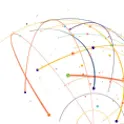Frontiers Communications
Editor
Editor

Psychology
08 Sep 2016
by Emily Barker, Frontiersin.org We’ve all heard the term getting in the zone – that moment when everything just clicks. Often the idea of the zone has been associated with elites athletes, such as Olympiads, but what about ordinary people – can we get in the zone? That is what Kath Woodward, Frontiers Specialty Chief Editor for Gender, Sex and Sexuality Studies, and her team are trying to work out by looking at different areas such as sport, computer gaming and music. Rather than see the zone as one thing, she explained it is actually a set of phenomena. The zone is when musicians, athletes, creative workers and others do certain actions with an unexpected and extremely high level of competence, often beyond the competence the individual thought they were capable of. It is linked to high-state performance. Previously, the idea of the zone has been mainly been studied in relation to psychology and has been linked to the idea of flow. However, Prof. Woodward thinks there are other factors in play such as the environment, temporality and of course confidence in your abilities, which can include factors such as gendered expectations. “You need a level of confidence in what […]

Neuroscience
07 Sep 2016
By Mark Wartenberg, Frontiers Science Writer Emotionally invested parents can mean children are more likely to be successful later in life, a study published in Frontiers in Human Neuroscience shows. Looking at 27 children aged between four and six, the study examined the quality of the emotional bond to their parents, and their cognitive control including: resisting temptation, their ability to remember things, and whether they are shy or withdrawn. Maximizing children’s chances of success can seem daunting and an impossibly tall order. This research found a caring and emotionally attentive environment is liable to be a long-term game-changer. The study involved a combination of questionnaires, behavioral tasks and electrophysiological measurements. The researchers looked at the quality of the emotional bond – referred to as emotional availability (EA) – between mothers and children. Second, the children’s executive functions were measured through a number of exercises. Finally, the study measured the neural responses of children who were tasked to inhibit certain aspects of their behavior. This was achieved through EEG (Electrotroencephalography) by measuring small variations in voltage in certain key parts of the brain. Dr Schneider-Hassloff, a researcher on the study, noted: “this study investigated the association between emotional interaction […]

Neuroscience
06 Sep 2016
by Conn Hastings, Frontiers Science Writer By relaxing flexed muscles in your foot, you can reduce the ability of your hands to respond to stimulation known as excitability, a study published in the open-access journal Frontiers in Human Neuroscience found. Although this result might sound bizarre, movement in one limb interfering with movement in another is something you have probably discovered yourself. Anyone who has ever tried to rub their head while patting their belly can confirm this – failing at that wasn’t your fault either, although it was pretty humorous. The muscles in your body contract to pull on your bones and relax to release them again, in response to neural impulses. This forms the basis of movement. However, coordinating both muscle contraction and relaxation is essential for normal physical activity. Rapidly switching between these states is particularly important in activities where complex movements are required, like sports or playing musical instruments. While the balance between muscle relaxation and contraction is important, they are distinct processes in their own right. Brain imaging studies show that specific areas of the brain activate during muscle relaxation, indicating that it is an independent and active neurological process, and not merely the end or […]

Frontiers news
02 Sep 2016
Below is a list of Frontiers eBooks published in August 2016. All Frontiers eBooks are free to download, share and distribute. Science: Abstract Mathematical Cognition, hosted by Philippe Chassy and Wolfgang Grodd Music, Brain, and Rehabilitation: Emerging Therapeutic Applications and Potential Neural Mechanisms, hosted by Teppo Särkämö, Eckart Altenmüller, Antoni Rodríguez-Fornells and Isabelle Peretz How and Why Does Spatial-Hearing Ability Differ among Listeners? What Is the Role of Learning and Multisensory Interactions?, hosted byGuillaume Andéol, Brian D. Simpson and Ewan A. Macpherson Abiotic Stress Signaling in Plants: Functional Genomic Intervention, hostedby Girdhar K. Pandey, Manoj Prasad, Amita Pandey and Maik Boehmer Language, Cognition and Gender, hosted by Alan Garnham, Jane Oakhill, Lisa von Stockhausen and Sabine Sczesny From Is to Ought: The Place of Normative Models in the Study of Human Thought, hosted by Shira Elqayam and David E. Over Improving Working Memory in Learning and Intellectual Disabilities, hosted by Silvia Lanfranchi and Barbara Carretti Sub- and Supra-Second Timing: Brain, Learning and Development, hosted by Lihan Chen, Yan Bao and Marc Wittmann Optogenetic Tools in the Molecular Spotlight, hosted by Tilo Mathes and John T. M. Kennis Protein Phosphorylation in Health and Disease, hosted by Allegra Via and Andreas Zanzoni […]

Life sciences
02 Sep 2016
by Simon Watt, Frontiers Science Writer One vent just isn’t enough for some volcanoes: the curious case of Mount Etna’s wandering craters. Volcanoes are geology at its most exciting. They seem so fiery, dangerous and thrillingly explosive. That may be true, but most old and mature volcanoes are surprisingly stuck in their ways and even if when they will blow is difficult to forecast, where they will blow from is often more predictable. The majority of volcanoes look as they do in a child’s drawing; like a steep mountain with its head cut off. They have a summit crater and, if they erupt, it is from this rocky orifice that lava and ash spews. But this is not the case with Mount Etna on the Island of Sicily, Italy, a study published in the open-access journal Frontiers in Earth Science found. Etna has been collecting new summits as though they are Pokémon. It is as if the mountain has had an outbreak of acne, with multiple cones forming in a geologically short space of time. According to Professor Valerio Acocella, of Roma Tre University and his colleagues from Ingv Catania, this makes Etna “perfect for study”. Valerio and […]

Psychology
02 Sep 2016
Wolves pursue a high-risk, all-or-nothing strategy when gambling for food, while dogs are more cautious, shows a new study. This difference is likely innate and adaptive, reflecting the hunter versus scavenger lifestyle of wolves and dogs. Would you rather get 100 euros for certain, or have a fifty-fifty chance of receiving either 200 euros or nothing? Most choose the first, as humans tend to be “risk-averse”, preferring a guaranteed pay-off over the possibility of a greater reward. It is thought that this human preference for “playing it safe” has evolved through natural selection: when you live precariously like our remote ancestors, losing all your food reserves might be catastrophic, while adding to them might makes less difference to your chances of survival. Here, in one of the first studies on risk preferences in non-primates, scientists show through a series of controlled experiments that wolves are consistently more prone to take risks when gambling for food than dogs. When faced with the choice between an insipid food pellet and a fifty-fifty chance of either tasty meat or an inedible stone, wolves nearly always prefer the risky option, whereas dogs are more cautious. “We compared the propensity to take risks in a […]

Health
02 Sep 2016
With a clever approach, researchers point to the first gene that could be protective of tinnitus — that disturbing ringing in the ear many of us hear, when no sound is present.

Frontiers news
31 Aug 2016
Frontiers in Applied Mathematics and Statistics is proud to announce the launch of its newest section – “Mathematics of Computation and Data Science” led by Specialty Chief Editor, Prof Charles Chui, of Stanford University and Hong Kong Baptist University. We welcome manuscript submissions and Research Topics to this brand new interdisciplinary section. Message from Specialty Chief Editor, Charles Chui “Mathematics of Computation and Data Science” is an interdisciplinary section that publishes original research papers, survey articles, tutorials, and innovative numerical modeling, as well as simulation and exciting experimentations, with emphasis on computational methods and algorithms, particularly for data processing, understanding and visualization. The mission of this section is to provide a common platform for communication among mathematicians, statisticians, computer scientists, physicists, biomedical scientists, engineers, and other researchers for sharing their innovative approaches, effective methods, and interesting experimental results, that are instrumental to the advancement of Data Science. “Mathematics of Computation” is a popular field of research in Mathematics, with original papers published by several well established journals, including: Applied and Computational Harmonic Analysis, SIAM Journal of Scientific Computing, SIAM Journal of Numerical Analysis, Journal of Numerical Mathematics, IMA Journal of Numerical Analysis, Numerische Mathematik, Mathematics of Computation, Foundations of […]

Neuroscience
31 Aug 2016
by Srividya Sundaresan, Frontiers Science Writer Imagine two candidates at a high stakes job interview. One of them handles the pressure with ease and sails through the interview. The other candidate, however, feels very nervous and under-performs. Why do some people perform better than others under emotionally stressful conditions? The clue might lie in early childhood experiences, a recent study published in the open access online journal, Frontiers in Human Neuroscience found. Emotional bonds with our primary caregiver or parent in early childhood are thought to be the basis of our ability to regulate our emotions as adults. “We know from other studies that our history of attachment directly influences how we act in social situations;” explained Dr. Christine Heinisch, one of the authors of the study; “but what about reaction to a neutral stimulus under emotional conditions?” A good example of this in daily life, says Dr. Heinisch, is when a car approaches a traffic light. Under neutral conditions, it is easy for the driver to follow the signal. But what happens under emotional conditions? “Usually, people tend to make more errors, like stopping too late or even driving through when the traffic light is red. Sometimes they stop although […]

Health
26 Aug 2016
New understanding of the immune system and stem cell technology gets scientists closer to treating deadly fetal diseases even before birth

Psychology
25 Aug 2016
“Who broke Grandma’s favorite vase?” As you listen to a chorus of “I don’t know” and “Not me,” how will you determine the culprit?

Open science and peer review
25 Aug 2016
To celebrate the publication of 50,000 peer-reviewed articles in Frontiers, we take a peek at the Top 10 most-cited Original Research articles in Engineering, Health and Science. We also included the Latest Original Research articles in Humanities and Social Sciences, to honour our youngest program.

Humanities
25 Aug 2016
— By K.E.D. Coan Social media can disseminate critical information as well as unite disaster victims during their recovery efforts, suggests a study published in Frontiers in Communication. After natural disasters communities rely heavily on local governments to provide the necessary resources and information to respond to such disasters, but these approaches are not well equipped to meeting individual needs. As a complement to traditional methods, social media can provide a more personalized resource as well as fostering a sense of community in response to the crisis. “A relatively organized social media resource can go a long way to ensuring that people’s needs can be met;” said Douglas Paton, a professor of Psychology at Charles Darwin University and lead author of the study; “This is the first paper to explore whether people’s engagement through Facebook could translate into the development of more enduring, functional relationships.” Following a wildfire in Tasmania in 2013, the local community used a Facebook page developed by co-author Mel Irons, Tassie Fires – We Can Help, to relay details about disaster relief efforts and resources. The site also provided an opportunity for people to share their individual situations, needs, and reactions—and to connect with other people who […]

Neuroscience
24 Aug 2016
As scientists around the globe join efforts to understand brain function, we enter the era of Big Data and stir up debate on how science is done and how it can affect us all.

Environment
23 Aug 2016
Researchers read into the biological history of plants to reveal how plants will survive when birds and bees fly away.
Get the latest research updates, subscribe to our newsletter